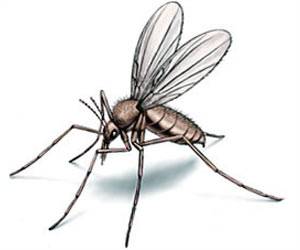The excited cries of two otters can be heard as they swim around a fishing boat in a river in southern Bangladesh

It is a rare technique that relies on coordination between man and trained otters, a centuries-old fishing partnership that has already long died out in other parts of Asia.
"Our job depends on the otters," says Shashudhar Biswas, a fisherman in his 50s, whose family has trained the animals to help them fish for generations. The otters do not catch the fish themselves, instead they chase them towards the fishing net placed next to the boat.
"The otters manage to spot fish among the plants, then the fish swim away and we stay close with our nets. If we did it without them, we wouldn't be able to catch as many fish," says Shashudhar's son Vipul, standing as he steers the boat along the leafy canal.
Fishing is usually done during the night when the fishermen can expect to catch between four and 12 kilogrammes (8.8 and 26 pounds) of fish, shrimp and crabs.
The family earns around 250 dollars a month selling their catch at the local market.
Advertisement
"The kinds of fish we used to find with our father, we don't see here anymore," says Vipul.
Advertisement
Natural fish populations have reduced drastically in recent years, says Mohammed Mostafa Feeroz, a zoology professor at Dhaka's Jahangirnagar University, because "the fish simply cannot breed."
"Over-sedimentation, water pollution from oil and the use of pesticides in (rice) paddy fields, as well as over catching are all having an impact," Feeroz told AFP.
Feeroz has been studying otter fishing in Bangladesh for 25 years and over this period the number of families involved has dropped from 500 to just 150.
"Go back 50 years and the practice has declined by about 90 percent," he says.
If the trend continues he believes otter fishing will be "completely wiped out" within the next two decades.
Though still in his 20s, fisherman Vipul is equally pessimistic.
"If there are no fish, then there's no point in having the otter fishing system," he says.
"Just look at my family's situation. My brothers and sisters, they all want to study. They don't want to get into the river and catch fish. If they study then they will obviously move out of the village to find better jobs or they will buy fish from the wholesale and sell them," he adds.
He worries that his only source of income will soon no longer be profitable.
Each month almost half of his earnings are spent on feeding his five otters -- two fully trained adults and three young apprentices -- who consume 3-4 kilogrammes of fish a day.
And wildlife experts fear it is not only the livelihoods of the fishing families that are under threat.
Short-haired otters are an endangered species in Bangladesh and otter fishing plays a key role in their conservation, according to Feeroz.
"The captive population here is very healthy because of the fishing," he says.
Sometimes fishermen release otters into the wild which strengthens that population, research shows.
"But as the practice gradually decreases, the wild population will face increased pressure," he adds.
Source-AFP








